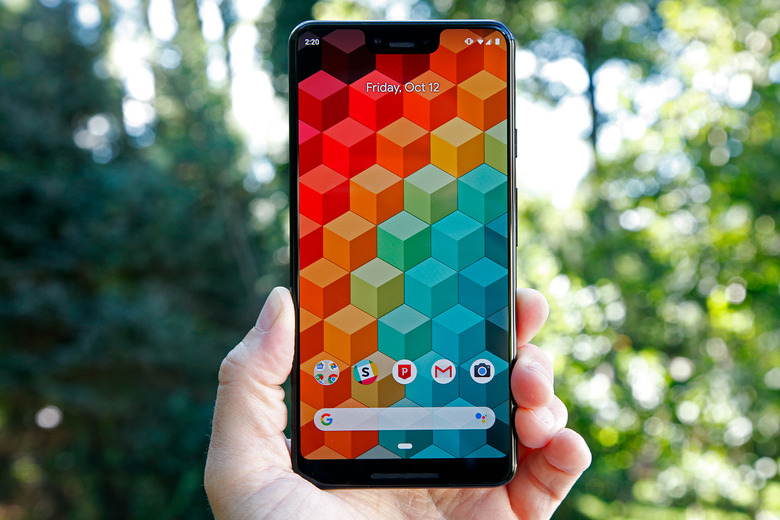Will The Pixel 4 Copy The iPhone XS's Most Advanced Feature?
When Google launched the first Android P Developer Preview last March, I explained why I thought at the time that the Pixel 3 would have a notch just like the iPhone X. That turned out to be true: Google copied the iPhone X's design, adapting other iPhone X features to work on Android in the process. Almost one year later, it looks like the next version of Android could bring built-in support for one of the iPhone X, XS, and XR's signature features. Yes, Android Q is supposedly going to support 3D face authentication, just like the iPhone X and its successors.
When Google copied the iPhone X design like almost every other company last year, it failed to also add Face ID-like features. Like I said before, the iPhone X set a perfect trap for Android makers, forcing them to copy the design without the complex components that actually made that design necessary. Just a couple of handset makers out there, including Xiaomi and Huawei, launched 2018 devices that feature 3D face authentication like the iPhone X. One reason that happened is because Apple had practically cornered the market for Face ID components, making it very difficult and expensive for competitors to copy the functionality.
But things may change soon, and we may see a Pixel 4 phone with Face ID-like authentication in stores this year. After all, Google already made it clear that it's ready to place two cameras on the front side of the Pixel, so why not make them part of a 3D facial recognition system?
![]()
A discovery from xda-developers says that Google is working on a Face ID-like feature for Android Q. That would help all smartphone makers, Google included, add Face ID-like features to their phones. A leaked AOSP build of Android Q contains code and language that suggests Google is working on bringing 3D face unlock to Android. Native support for 3D face unlock would make this much easier for Android phone vendors down the road.
That's not enough evidence to support the idea that the Pixel 4 will get Face ID-like support this year. But let's remember that all the hot features Google adds to Android are also supposed to appear on new Pixel hardware. The Pixel remains Google's primary vessel for showcasing the best new features of Android to developers and to the world. I'll also point out a tweet from a few days ago from Android Police's David Ruddock, who said that Google is currently investigating whether optical fingerprint sensors designs are secure enough to be used for mobile payments and banking apps.
If you were wondering, Ruddock was referring to in-display fingerprint sensors. He continued:
As you can see in the tweet above, he did say that the only two options Google would have included the rumored Galaxy S10 ultrasonic fingerprint sensor and Face ID-like facial recognition. Finally, he added that Samsung would be Qualcomm's first major customer for the new generation of ultrasonic fingerprint sensors that will go into the Galaxy S10 — that's a rumor we've heard from various sources in the past:
With all that in mind, let's return to Android Q's support for Face ID authentication — and I'm calling it Face ID for lack of a marketing term that Google will use for the feature. I said before that whatever new features Google bakes into Android should make it to a next-gen Pixel device. But let's not forget that Google still wants to create a Pixel phone that's better than the iPhone, which means it has to seriously improve its game going forward. That rear-fingerprint sensor needs to go away, and bezels need to shrink down even further. Face ID on Android would fix all that.
I didn't forget that Google was first to support face unlock on Android, and that was long before the iPhone X got Face ID. But that wasn't the secure smartphone unlock mechanism everyone wanted, and it's no surprise Apple took so long to get it right. So even though the company had a face unlock feature first, Google would end up copying Apple again if the Pixel 4 does get support for 3D face unlock.

The first Developer Preview of Android Q should be released in March, while the first Android Q beta will probably arrive at Google I/O in May. The Pixel 4, meanwhile, should launch in October.
